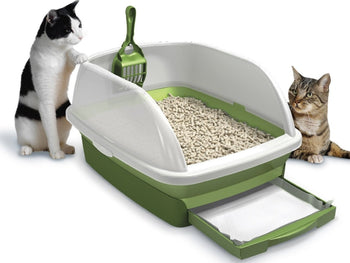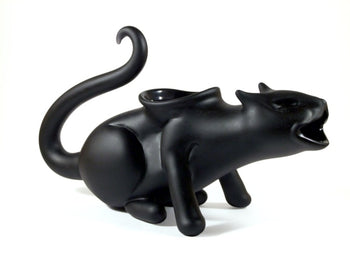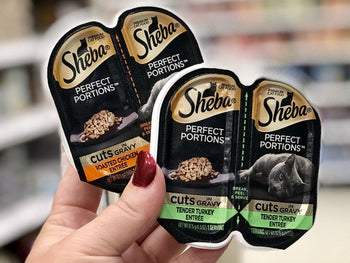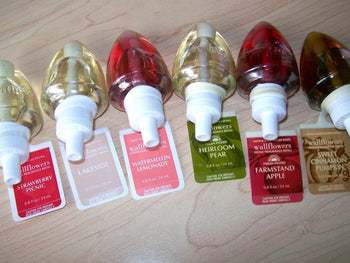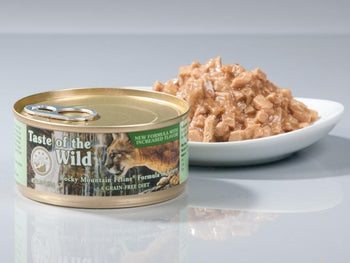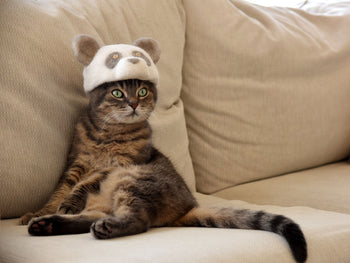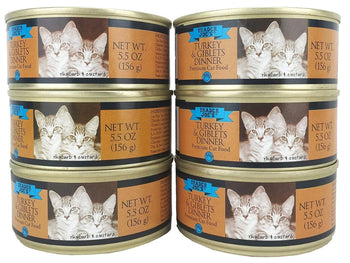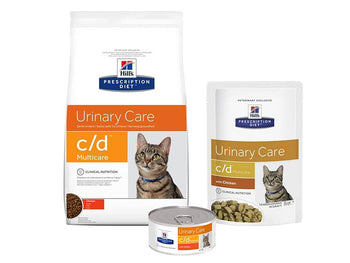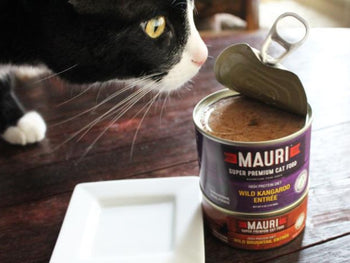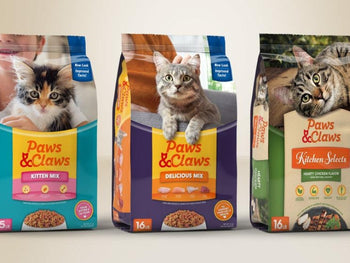

For pet owners that are unable to put together home-cooked diets for their cat, commercial foods prove quite handy. With such foods around, you should be able to prepare delicious meals for your fluffy friend in a few moments. That being said, different brands of cat food offer different nutrient values to the pets. As a result, you need to be careful while choosing commercial foods for your cat. As it contains by-products, Friskies is considered by a lot of people to be a subpar cat food but is Friskies bad for cats?
So you have been giving your cat Friskies for a fairly long time and worry that there could be consequences? Well, if that is your primary concern then you have come to the right place. Down below, you would be introduced to everything pet owners have to remember about Friskies and cat diet in general. Once you manage to get the hang of the fundamentals, it's generally a breeze to answer the question of "is Friskies bad for cats? ". Overall, deciding what to feed your cat is a simple task assuming that you know the physiology of the pet.
Friskies: Overviews Of The Formula

In order to answer the question of "is Friskies bad for cats?", you must assess the formula of the food. That is the only you could reach a logical conclusion.
After taking a glance at the ingredient list of Friskies, most people tend to frown upon the "by-product" part. "There is no way I'm going to give my cat foods that have intestines, stomachs, udder,..." is highly likely your first thought as well. The average human feels disgusted by such ingredients which is why pet owners automatically assume that cats share their sentiment. However, being natural-born predators, cats would have no trouble consuming their prey whole including eyes, nose, furs and other parts that people find appalling.
Since various by-products such as brains, spleens and livers pack excellent nutrient values, foods that use by-products could be put to good use. In fact, through a couple of diet tests, experts believe cats could live a healthy life eating nothing but Friskies and foods that like it. Of course, we have to take into account the condition of specific pets but most cats should consume Friskies day after day without experiencing significant troubles. The high-protein nature of the Friskies formula (45%) also makes sure that it would keep your pet in top shape.
Nonetheless, there are some issues about by-products that you have to keep in mind. First, by-products lack consistency, especially when it comes to names like poultry by-product meal, animal by-product meal,... You could not tell for certain what type of animal the by-products come from which often cause some confusion. Second, by-products sourced from unspecified parts of unspecified animals might contain allergens which lead to allergic reactions in cats. Third, some by-products are non-metabolizable (for instance, beak).
Final Verdict: Friskies Is Safe But Remain Far from Ideal

While people don't think of it as a premium cat food, Friskies is not half-bad if you are shopping on a tight budget. The affordable price of Friskies allows you to get it in large quantities without emptying your wallet in the process. However, if you have some money to spare and wish to get peace of mind, feel to go after more expensive brands on the market. All things considered, the answer to the question of "is Friskies bad for cats?" is "No, it's not bad for cats but the food is not top-notch, either".
Check us out for further detailed cat's health guide!
Setting Up Diets For Cats: 5 Rules You Have To Follow

With the question of "is Friskies bad for cats" taken care of, let's check out what pet owners should memorize while feeding domesticated cats.
-
Wet Foods All The Way
Cats depend on foods for moisture which is why they tend to drink less water than their body actually needs. Hence, it's strongly recommended that you give your pet diets that revolve around wet foods to introduce more moisture. In addition to that, wet foods contain low amounts of carbohydrates so you don't have to worry about issues like obesity, diabetes and others. Of course, you could add dry foods now and then to give the teeth of your pet something to work.
-
Refrain From Handing Out Scraps
Many pet owners think it's fine to give cats table scraps but in reality, such a practice is dangerous. Cats are obligate carnivores so they only need animal flesh to match their nutrient requirement. Hence, if your pet accidentally ingests human foods, its stomach could run into serious troubles. In order to prevent that scenario, never ever give your cat table scraps as a precaution but occasional treats using proper foods should be acceptable.
-
Use Water Instead Of Milk
When it comes to drinks for cats, people assume that it would be beneficial to give cat plenty of milk. However, a lot of cats become lactose intolerant as they grow up so giving adult cats milk is ill-advised. In most of the case, it's best to prepare a bowl full of freshwater but if possible, consider purchasing a cat water fountain.
-
Be Patient While Introducing Foods
Due to skeptical natures of cats, it's going to take time for your pet to take in new foods. Because of that, it's widely advised that you refrain from rushing your cat to consume foods that it's unfamiliar with in one setting. Whatever happens, don't force the pet to either accept the foods or starve as that would generate unnecessary stress.
-
Always Stick To Meal Feeding
It's universally agreed that free feeding is quite convenient: simply fill the feeding bowl to the brim and leave it there for the pet. That being said, the average cats would continue eating as long as foods are available which means free-feeding could lead to uncontrollable weight gain. As a result, to keep the weight of your pet in check, you have to implement a meal-feeding diet.
Read more Cat Product Reviews and find fun stuff on Cattybox !
